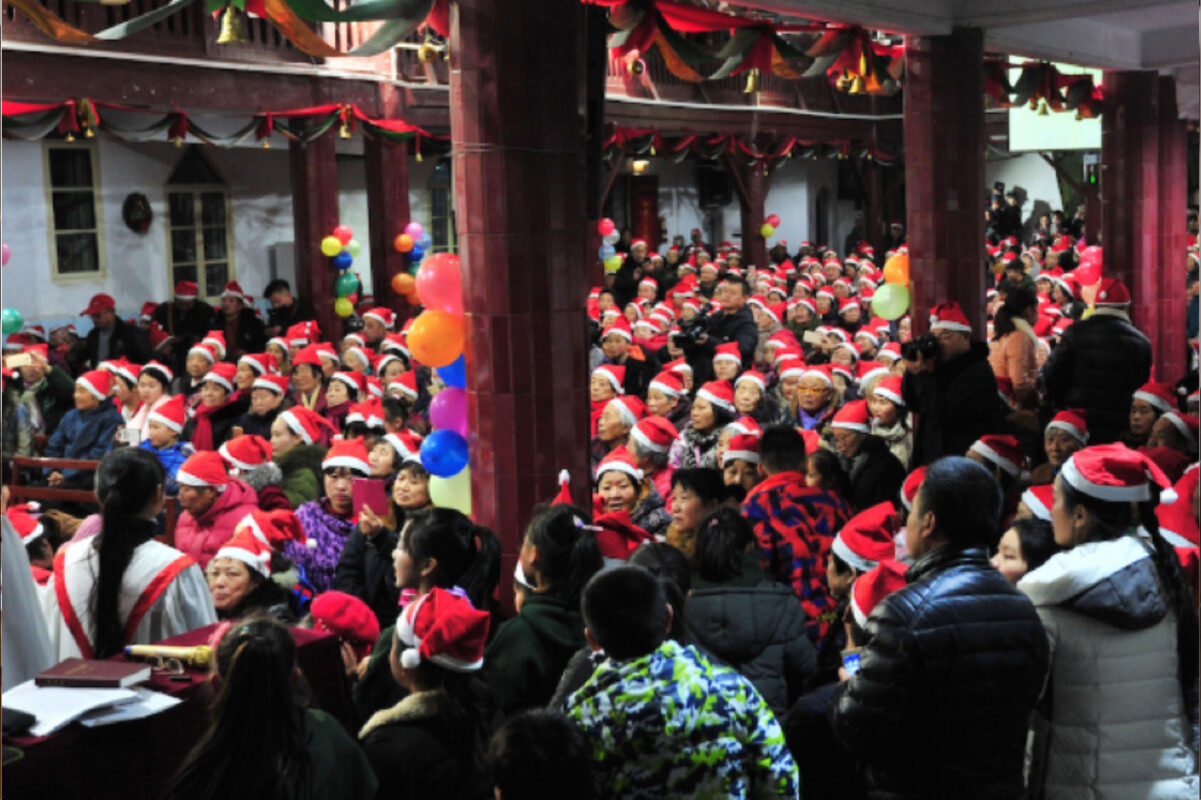CHINA
China rewards informants of illegal religious activities
Critics see the move in Guangzhou as a return to elements of the Cultural Revolution
ucanews.com reporter, Hong Kong
China
April 2, 2019

Chinese Christians attend a Christmas Eve Mass at a church in Fuyang in China’s eastern Anhui province in 2017. (Photo by AFP)
China’s coastal Guandong province is offering cash rewards to citizens who provide information on banned religious activities.
Official media reported on March 28 that the Department of Ethnic and Religious Affairs in Guangzhou, the provincial capital, is encouraging citizens to lodge formal complaints on rules violations, including those involving foreign non-government organizations.
Verified tip-offs about illegal religious activities are to be rewarded with cash payments ranging from the equivalent of US$13 to US$1,300.
The encouragement of people to denounce fellow citizens over alleged political transgressions against Communist Party rule was a feature of the oppressive 1966-76 Cultural Revolution.
The Cultural Revolution was a sociopolitical movement based on class struggle to defend communism by encouraging loyalists to inform on, humiliate and harass so-called counter-revolutionaries.
The excesses of the period are seen by critics to have undermined the traditional ethics of Chinese culture.
A Catholic, who identified himself as Paul, noted that in that period people reported on each other as a means of survival, adding that such practices were common in fascist dictatorships.
Paul noted that inducements to report on banned religious activities, which can include unsanctioned gatherings, have recently also been offered in Henan province of central China.
There is now concern that such measures would spread throughout the country, he said.
There have been media reports that several counties in Henan province have established special letterboxes as well as phone lines and electronic means for the public to inform on religious and faith groups.
An online magazine called Bitter Winter focusing on religious restrictions in China reported that the reward system will inhibit religious gatherings and preaching of the Gospel as Christians would fear arrest at any time.
The system of rewards for informants is defended by officials as necessary for national safety and social cohesion to prevent use of unregistered religious venues, receipt of unapproved donations and unsanctioned travel abroad for religious purposes.
The largest cash rewards are reserved for people who give officials information about the leadership and hierarchies of foreign religious organizations deemed to be illicit.
Ying Fuk-tsang, director of the divinity school at the Chinese University of Hong Kong, believes it is premature to state yet whether or not China faces a revival of the Cultural Revolution. However, he said there is obviously already a strategy of “arraying” citizens against each other.
The professor, who specializes in the history of Christianity in China, said that at a neighborhood level there has long been urging of the general public to report so-called house churches and underground religious communities.
Meanwhile, a priest in Guangzhou, who did not wish to be named, said the reward measures were targeting house churches of Protestant denominations. “The Catholic Church here does not have an underground community,” he told ucanews.com.


 ENG
ENG